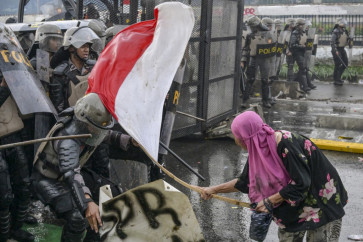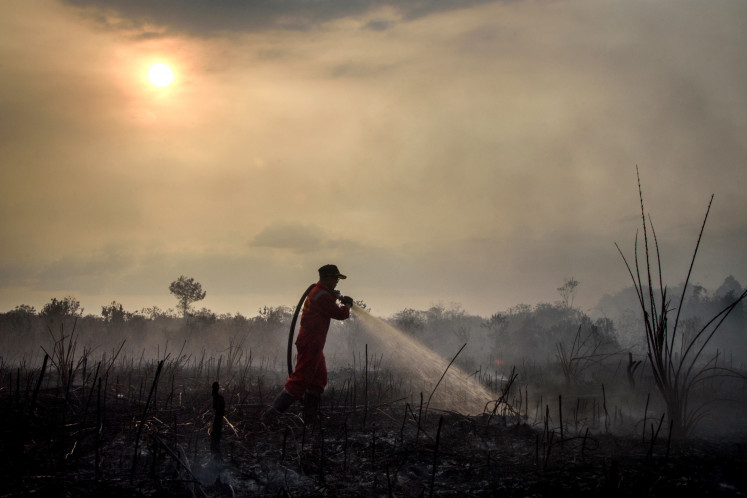Popular Reads
Top Results
Can't find what you're looking for?
View all search resultsPopular Reads
Top Results
Can't find what you're looking for?
View all search resultsCoral Triangle: Your problem is our problem
Recent moves by countries bounding the coral triangle - Indonesia, Malaysia, the Philippines, Papua New Guinea, Timor Leste and the Solomon Islands - to protect the reefs of Southeast Asia and the Pacific are both timely and laudable
Change text size
Gift Premium Articles
to Anyone
Recent moves by countries bounding the coral triangle - Indonesia, Malaysia, the Philippines, Papua New Guinea, Timor Leste and the Solomon Islands - to protect the reefs of Southeast Asia and the Pacific are both timely and laudable. But they cannot be fully effective without focused help from friends.
Some of the threats to coral have been well characterized by biologists. Warming ocean temperatures cause corals to bleach. The removal of predators through overfishing and habitat loss causes algae and other enemies of coral to flourish. The poking, kicking and chipping away at coral over the years by myriad tourists, resort developers and fishermen is another.
Perhaps the most insidious threat is the one only now being fully appreciated. The acidity of the oceans is rising to levels that could soon start to substantially stunt coral growth - within decades.
Of all the excess carbon dioxide placed into the atmosphere by the burning of fossil fuels, at least a quarter has been absorbed by the oceans. There it is converted into carbonic acid.
This has already increased the acidity of the oceans by a stunning 30 percent over the last 100 years. As this continues, the ability of corals and other marine invertebrates to acquire the calcium carbonate they need for their shells becomes greatly diminished, and eventually impossible.
Some estimates project that the collected effects of acidification, bleaching, disease and human-caused damage could begin to cause coral reefs to deteriorate faster than they can grow by mid-century.
So a localized effort to prevent overfishing, protect endangered species and help the fishing industry plan for the future will help, but in addition, I advocate that the Coral Triangle Initiative (CTI) invests a modest portion of its pooled resources into permanent moorings equipped with carbon dioxide (CO2) sensors to continually monitor the acidity of coral triangle waters over a range of depths.
In California, we plan to launch a network of sensors like these by as soon as this month.
Over the last 20 years, a sparse network of stations scattered throughout tropical oceans have recorded this inexorable increase in average ocean acidity. Sadly, nothing prepared us for the stunning discovery two years ago by Richard Feely, a researcher with the United States' National Oceanic and Atmospheric Administration (NOAA), that during the summer upwelling season, water so acidic that it is "corrosive" to small calcium carbonate-forming organisms is already found just a few dozen kilometers off the northern coast of California. Off this very coast reside some of America's most commercially important fish populations.
Preserving any individual ocean region is thus ultimately going to require a global effort to save this single, global ocean. The United States and six other top emitters of CO2 - China, the European Union, Russia, India and the collective shipping industry - must do more to acknowledge and mitigate the effects of their emissions on places like the coral triangle.
The only known solution is to stop emitting CO2. Without substantial reduction measures, the success of the CTI will be temporary, only addressing a portion of the hazards faced by coral reefs.
In fact, the threats to coral associated with greenhouse gas increases are the most lasting. The carbon loading that has taken place most intensively in just the last 50 years is triggering ocean acidification and warming trends that will take centuries to reverse.
Solutions to the coral triangle's looming problem must come, then, from outside its boundaries as well as from within. In this sense, we are all neighbors with a local problem on our hands.
Tony Haymet is director of the Scripps Institution of Oceanography at the University of California San Diego. He is also a moderator and panelist at the World Ocean Conference (WOC), which runs from May 11 to 15 in Manado.










